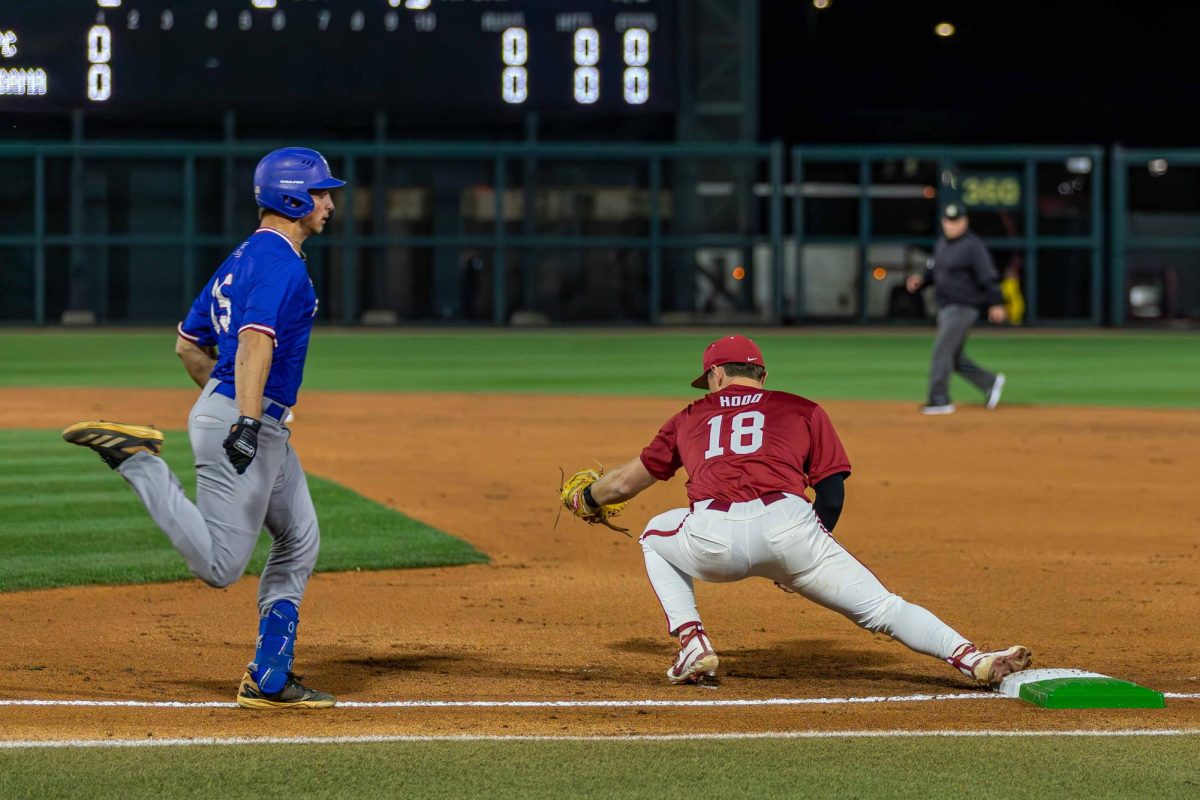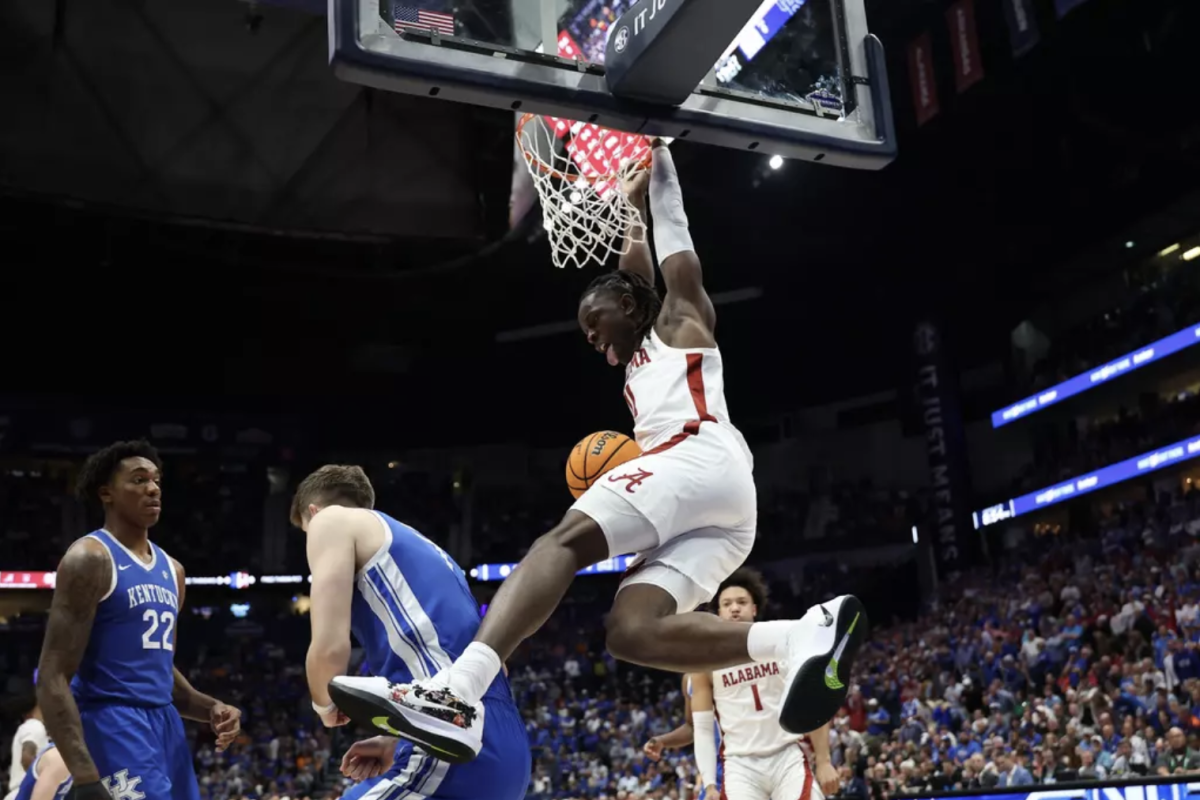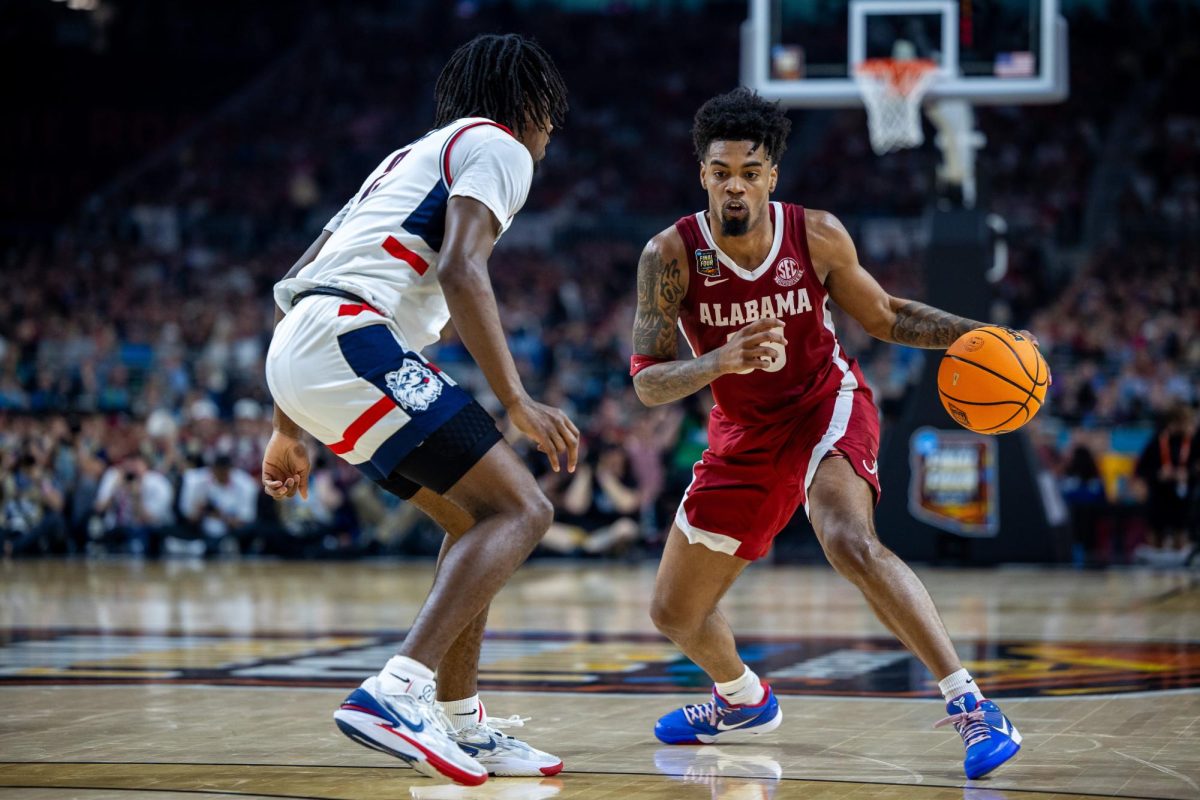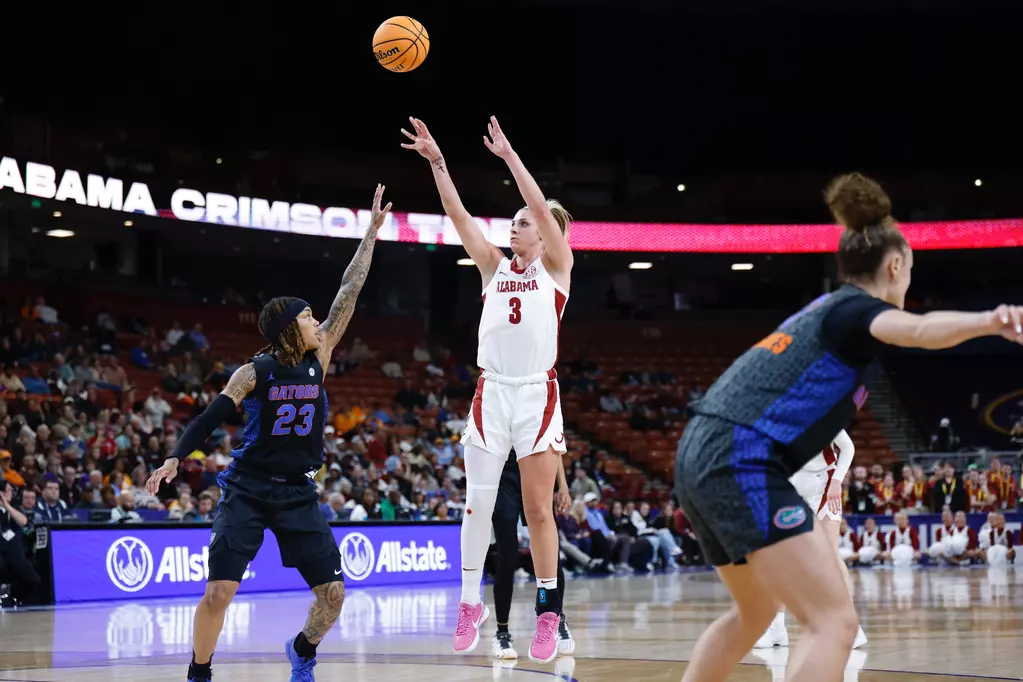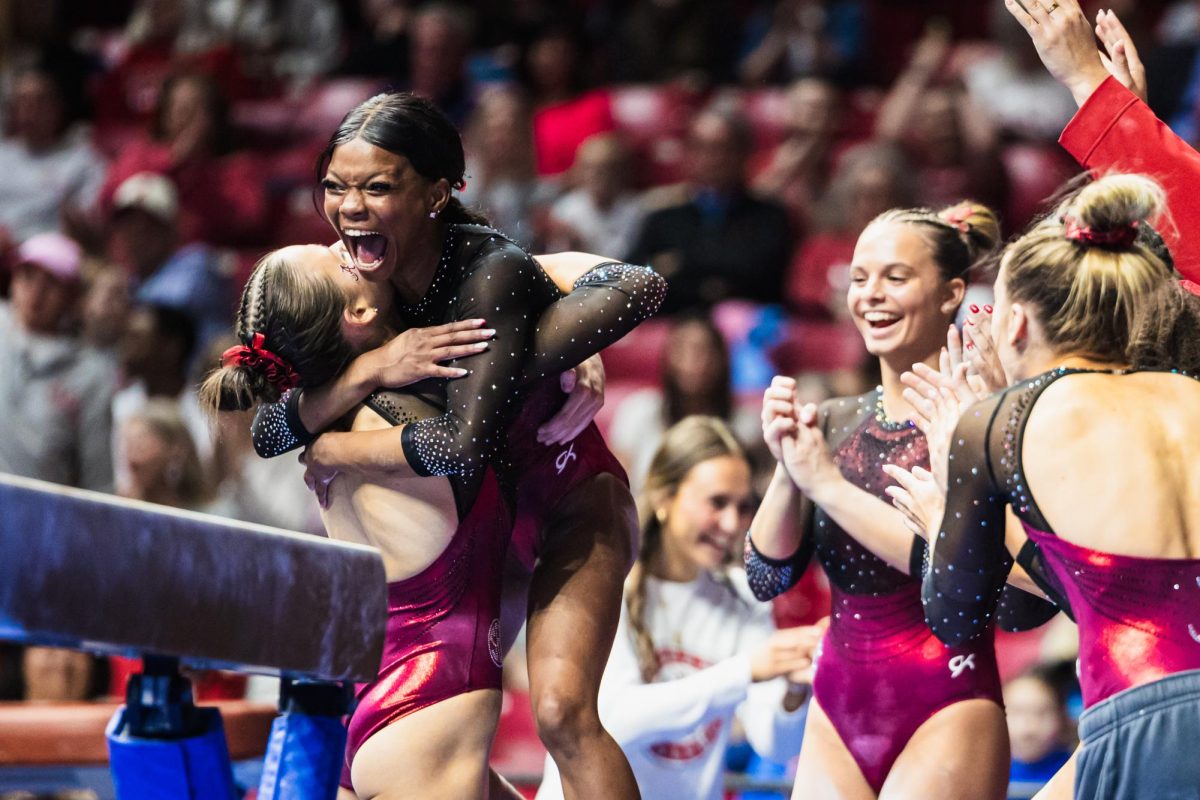The Saint Louis University football team went undefeated in 1906, the first year that the forward pass was legal in college football.
The Billikens outscored opponents 407-11 that season.
Although the school does not have a football team anymore, coach Eddie Cochems made his mark on college football history by developing the first passing offense and using it to dominate in a game that relied solely on size and strength.
Darwin would be so proud.
Nick Saban knows he needs to adapt. The Crimson Tide’s two losses last season revealed the fact that our football team plays in first gear, while teams who adopt quick no-huddle offenses are speeding past us.
An NCAA committee recently passed a proposal that would slow down these up-tempo offenses by prohibiting teams from snapping the ball until 29 seconds remain on the 40-second play clock. This rule, championed by Saban and Arkansas coach Bret Bielema, would essentially give defenses 10 seconds to make substitutions and get organized.
One of Saban’s arguments for the rule change is focused on player safety. His reasoning is that if games have more plays, players are more likely to get injured. Unfortunately for Saban and other football traditionalists, this argument is not likely to accomplish anything.
The proposal now must be approved by the playing rules oversight panel.
“Their role is to examine rules on the basis of player safety, economic impact and image of the game,” said Rogers Redding, NCAA coordinator of officials.
It looks to me like the economic impact and image of the game will trump player safety on this one.
After a 1905 season in which 18 players were killed and 159 were seriously injured, the Rules Committee still legalized the forward pass.
Player safety was not a trump card a century ago and it is not a trump card now.
The game is changing and Saban’s process needs to adapt if it is to survive.



